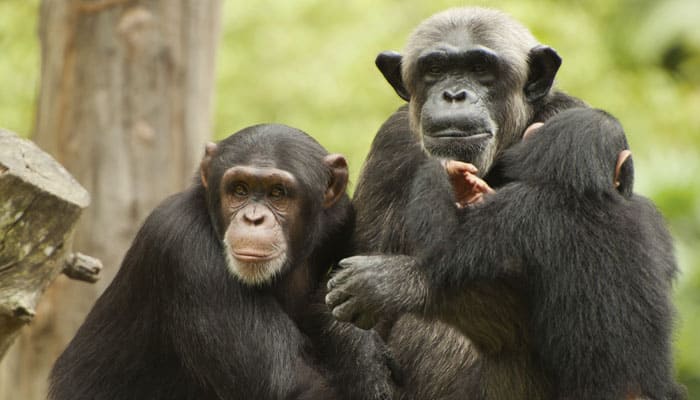London: Human activities might be exposing endangered chimpanzees to infectious diseases which may be contributing to their decline, says a study.
In a study focused on primates in Tanzania's Gombe Stream National Park, researchers investigated the parasite Cryptosporidium and cross-species transmission risks among humans, wild primates and domesticated animals within the greater Gombe ecosystem.
"We found that people are likely exposing the endangered chimpanzees of Gombe to a particular species of Cryptosporidium," said Michele Parsons, PhD student in Emory University.
Cryptosporidium (Crypto) is one of the most frequent causes of waterborne disease in humans. The dominance of Crypto hominis among humans and non-human primates suggest cross-species contamination.
"It appears to be a case of spillover, or exchange of a pathogen, from humans to animals, instead of the other way around," she noted.
The spillover of any one pathogen between species, Parson adds, "is an indicator that an ecological connection exists, with potential for other pathogens to emerge."
The study also revealed that some of the chimpanzees are infected with a species of Cryptosporidium associated with pigs.
"No domesticated pigs reside in the village just outside the park, so we think it is likely that the source of infection is wild pigs living in the forest," Parsons added.
When it comes to protecting endangered species, the focus is often limited to providing habitat and preventing hunting.
"But disease also matters in conservation and that is a relatively new message. Our research shows that if we're going to keep these iconic chimpanzees on the planet, we need to address the spread of infectious diseases," she emphasised.
Gombe is the site where Jane Goodall, one of the world's most prominent and popular primatologists, conducted her pioneering research into the behaviour of wild chimpanzees, beginning in 1960.
Goodall's project is now the longest field study of any animal. Each individual chimpanzee has been identified and its maternal line is known.
"Infectious disease should be a key consideration in wildlife conservation, a study that was published in the journal PLOS Neglected Tropical Diseases, concluded.
















